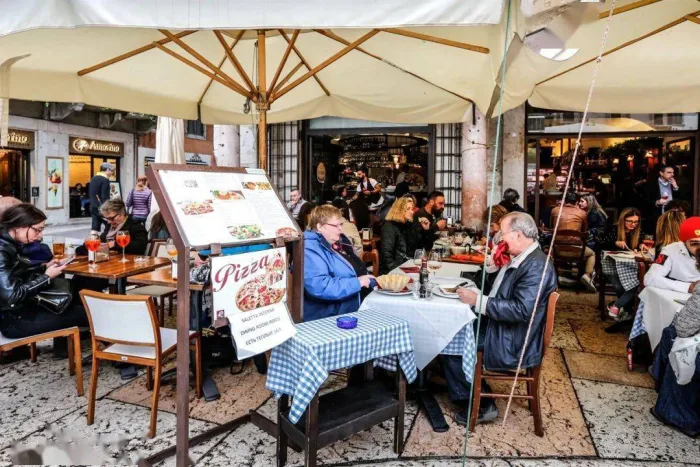In recent years, as the quality of life in Europe has improved and globalimmigrantsItaly is becoming a new choice for more and more Chinese families as the trend changes. This country, with its splendid culture, quality education resources and "slower" pace of life, is attracting not only the affluent, but also a growing number of middle-class families.
So, what exactly are theImmigration to ItalyIs the program more suitable for Chinese people? Italy's education, cost of living, tax system and what is worth paying attention to? This article will analyze for you one by one.
I. Suitable for Chinese people mainlyImmigration to Italysports event
Although Italy does not have the "Golden Residence" path of buying a house and immigrating like Portugal, there are still a variety of stable, legal and practical ways to suit different needs of Chinese applicants.
1. Investor Visa
This is the closest program to the logic of "High Net Worth Immigration" in Italy:
-
Investment in government bonds: at least 2 million euros
-
Investment in an Italian business: at least 1 million euros
-
Investment in start-ups: from EUR 250,000
-
Donations to charitable projects: 1 million euros
Advantages: fast application process, no language requirement, can be applied by the whole family, suitable for those who have more assets and pursue EU status.
2. Self-Employed Visa (Autonomous Work Visa)
Suitable for those with professional backgrounds such as freelancing, consultancy, art, translation, IT, etc. Required to demonstrate self-employment and client resources. Visa quota is small, but you can get a residence permit directly after approval.
Suitable for young and middle-aged professionals with good language skills who plan to develop in Italy on a business basis.
3. Startup Visa
Encourage entrepreneurs in high-tech and innovative fields to set up businesses in Italy.
-
Projects must be supported by an official Italian certified incubator
-
Low initial investment threshold (generally not more than Euro50,000)
-
Suitable for young applicants with overseas entrepreneurial plans and technical backgrounds
4. family reunification
If you already have a relative with a legal residence card in Italy (working, studying or naturalized), you can apply for family reunification.
Suitable for families with children studying abroad or with relatives already settled in Italy, the procedure is relatively simple.
5. Study + Transfer of Residence Pathway
For young families.Children Studying Abroad + Family Accompanying + Employment/Entrepreneurship to Long-Term ResidenceIt is a sound way of "curved immigration".
Many Chinese families enter the Italian education system through their children first, and then complete their family transition.
Second, the Italian education system: public high quality + language threshold moderate
For Chinese families, Italian education has several attractions:
-
High-quality public education free of charge: There are essentially no fees from primary to high school, and education is compulsory for 12 years.
-
Affordable university tuitionPublic universities have an average tuition fee of 1,000 to 3,000 euros, which is very cost-effective compared to the United Kingdom and the United States.
-
Global leader in art, architecture and fashion design: The Politecnico di Milano, the Accademia di Belle Arti di Roma, the University of Florence, etc. are very attractive to art students.

-
No high school entrance exams required for admission, clear language requirements: Most schools have classes taught in Italian or English.
Italy supports families of international students to accompany them, and many Chinese parents choose to "use their studies as a bridge" to gradually integrate into Italian society.
III. Cost of living in Italy: big differences in cities and a pace of life suitable for raising children
The cost of living in Italy is relatively modest compared to Scandinavia or the UK and the US:
-
rent an apartment: Rent for a one-bedroom apartment in Rome, Milan and other major cities is around 700
1000 Euro/month, as low as 400 in small towns or in the South600 euros -
Supermarkets are affordableMilk: 1€/liter, eggs: 1.8€/10, fresh fruits and vegetables at a good price.

-
Monthly Public Transportation Pass: Generally 35 to 55 euros
-
Free or low-cost medical care and wide coverage of services: The Italian public healthcare system is accessible with a residence card.
It is especially suitable for families with small children who emphasize on life balance and cultural and educational atmosphere.
IV. Taxation and asset planning: what priorities do Chinese need to know in advance?
The Italian tax system is more complex, but also offersTax incentives for immigrantsThe burden can be greatly reduced by rationalization:
✅ Key point 1: Global tax regimes
Once you become a tax resident, you are required to declare worldwide assets. However, if there is no Italian-source income or assets, double taxation can be avoided.
✅ Key Point 2: High-income earners can apply for the "Expatriate Elite Tax Credit".
If your application is successful, you will only be required to pay a capped tax amount of €100,000/year and will not be required to declare your worldwide income.
✅ Key point 3: Property, gift and inheritance taxes are lower than in most European and American countries.
Families with asset backgrounds are advised to consult a professional tax advisor before emigration and make good CRS and overseas declaration strategies to avoid unnecessary troubles in the future.
Conclusion:Immigration to ItalySuitable for Chinese families who "pursue a sense of quality of life".
Italy is not for "quick fix" immigrants, but for Chinese families who are willing to integrate slowly and focus on education, culture and lifestyle.
There's no bling passport program, but there is an authentic human touch, a comfortable educational environment, and a relaxed enough social space.
With proper planning, Italy can be a worthy destination for immigrants who want to commit their future.






